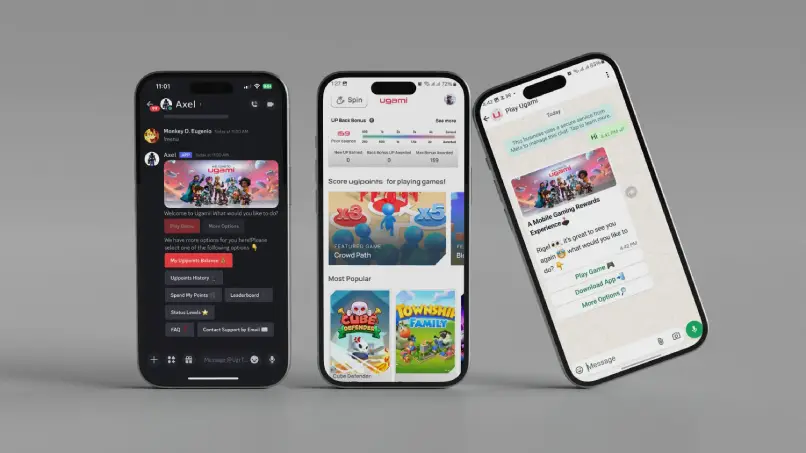Unlock great benefits when you play to earn rewards in your beloved games
Why Play-to-Earn Incentives Are Transforming the Way You Play and Earn
The emergence of play-to-earn models signifies a significant shift in the pc gaming landscape, inviting players to discover not only the home entertainment value of games yet additionally their potential as income-generating systems. This paradigm provides varied advantages, including property ownership with blockchain technology, which fundamentally modifies player involvement and financial investment. Nevertheless, as this design progresses, it provides a special collection of obstacles that could influence its sustainability and allure. Recognizing these characteristics elevates essential concerns about the future of video gaming and the ramifications for both players and programmers alike.
Introduction of Play-to-Earn Models
In recent years, the pc gaming market has witnessed a significant improvement with the introduction of play-to-earn versions, essentially altering just how gamers engage with electronic environments. This innovative method enables gamers to obtain concrete benefits via their in-game tasks, producing a change from standard gaming standards where enjoyment and competition were the key inspirations.
Play-to-earn designs take advantage of blockchain technology and non-fungible symbols (NFTs) to give gamers with possession of in-game possessions, which can be traded or cost real-world currency. Therefore, gamers are incentivized to spend effort and time into video games, promoting a sense of agency and financial opportunity. play to earn rewards. This shift has brought in a diverse gamer base, consisting of those that might have previously checked out video gaming as a totally recreational task
Numerous systems have arised, showcasing successful executions of this version, such as Axie Infinity and Decentraland. These systems have not just produced significant earnings however additionally sparked discussions around the sustainability and principles of such economic systems. As play-to-earn models continue to evolve, they guarantee to redefine the partnership between players, designers, and the wider digital economic situation, leading the way for a brand-new period in video gaming.
Benefits for Players
As players involve with play-to-earn versions, they unlock a variety of benefits that prolong past mere entertainment. Unlike standard gaming, where players spend time and money without concrete returns, play-to-earn systems allow players to make copyright or in-game assets that can be converted to real-world value.
In addition, play-to-earn models promote community building among gamers. Players commonly team up to achieve shared objectives, consequently cultivating social links that enhance the overall experience. This sense of community can cause participating gameplay, where players share techniques and sources, improving both individual and team success.
In addition, these models can equalize access to gaming by allowing gamers from varied economic backgrounds to profit monetarily. By taking part in play-to-earn communities, individuals can get abilities and knowledge concerning blockchain technology, further expanding their job possibilities in the burgeoning digital economic situation. Inevitably, the advantages for players expand well beyond gameplay, influencing their social, financial, and educational landscapes favorably.
Challenges in the Community
While the play-to-earn ecosystem offers considerable opportunities, it is not without its obstacles. Variations in value can discourage prospective gamers that look for secure earnings streams.
Another obstacle is the risk of rip-offs and deceitful systems that can plague the community. Gamers may encounter deceptive platforms guaranteeing high incentives yet inevitably causing financial loss. Ensuring trust and security is important for the lasting practicality of play-to-earn models.
Furthermore, the ecological effect of blockchain video gaming can not be ignored. The power intake related to mining and transaction handling raises honest inquiries regarding sustainability. Game designers need to locate an equilibrium in between fulfilling players and decreasing eco-friendly footprints.
Finally, the regulatory landscape is still developing, posing potential dangers for programmers and gamers alike. Uncertain legal structures can hinder development and limit the development of play-to-earn ecosystems. Addressing these challenges is necessary for recognizing the complete potential of see here now this transformative gaming paradigm.
The Role of Blockchain Modern Technology
Blockchain modern technology acts as the backbone of the play-to-earn environment, attending to several of the obstacles previously outlined. By using decentralized ledgers, blockchain makes certain transparency and security in purchases. Gamers can with confidence earn and trade in-game properties, understanding that ownership is proven and exempt to control.

Tokenization of properties plays a critical function, giving players real ownership of their in-game items, which can be gotten, marketed, or traded on numerous industries. This encourages a Get the facts vivid additional market, where gamers can monetize their abilities and time invested in the video game.
Furthermore, blockchain modern technology enables interoperability between different video games and systems, enabling gamers to bring their properties across different ecological communities. This adaptability not just improves individual experience but also advertises a more comprehensive pc gaming environment, eventually improving the landscape of pc gaming and earning.
Future Fads in Gaming
The video gaming sector gets on the verge of a transformative development, driven by arising innovations and moving gamer assumptions. As play-to-earn designs gain traction, players are increasingly seeking immersive experiences that mix home entertainment with tangible benefits. This shift is triggering designers to innovate, concentrating on creating appealing gameplay that promotes neighborhood and communication.
One significant fad is the combination of virtual reality (VR) and enhanced fact (AR), enhancing the video gaming experience by supplying deeper immersion and interactive settings. In addition, developments in expert system are enabling much more innovative non-player characters (NPCs) and flexible gameplay, tailoring experiences to individual player choices.

Verdict
In verdict, the play-to-earn model is substantially transforming the gaming landscape by allowing players to obtain real-world value from their in-game tasks. This standard change not only improves gamer engagement and investment yet also raises obstacles that have to be resolved to make certain sustainability within the ecological community. As blockchain innovation remains to promote possession of digital possessions, the future of pc gaming promises more technology and chances for players across diverse backgrounds.